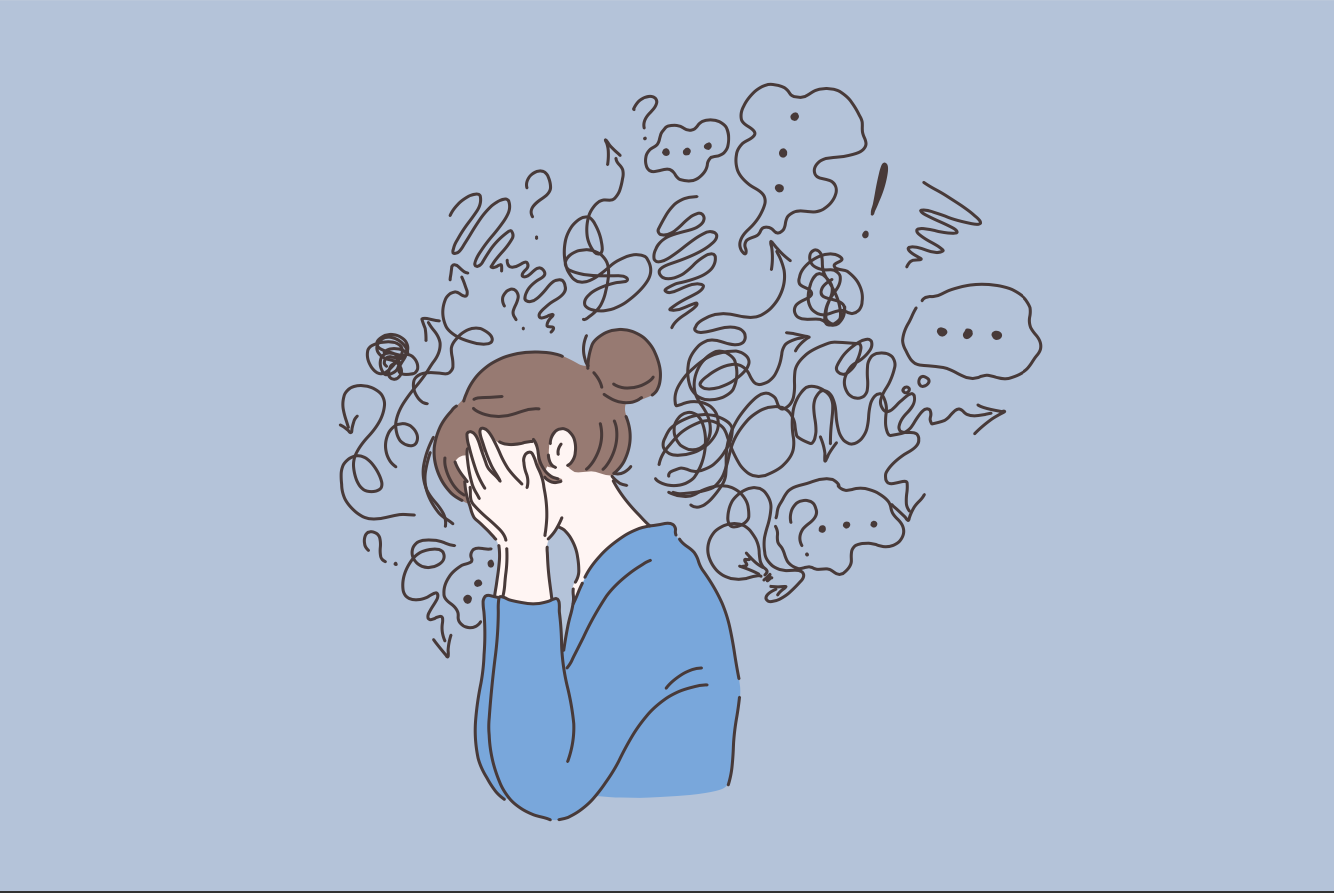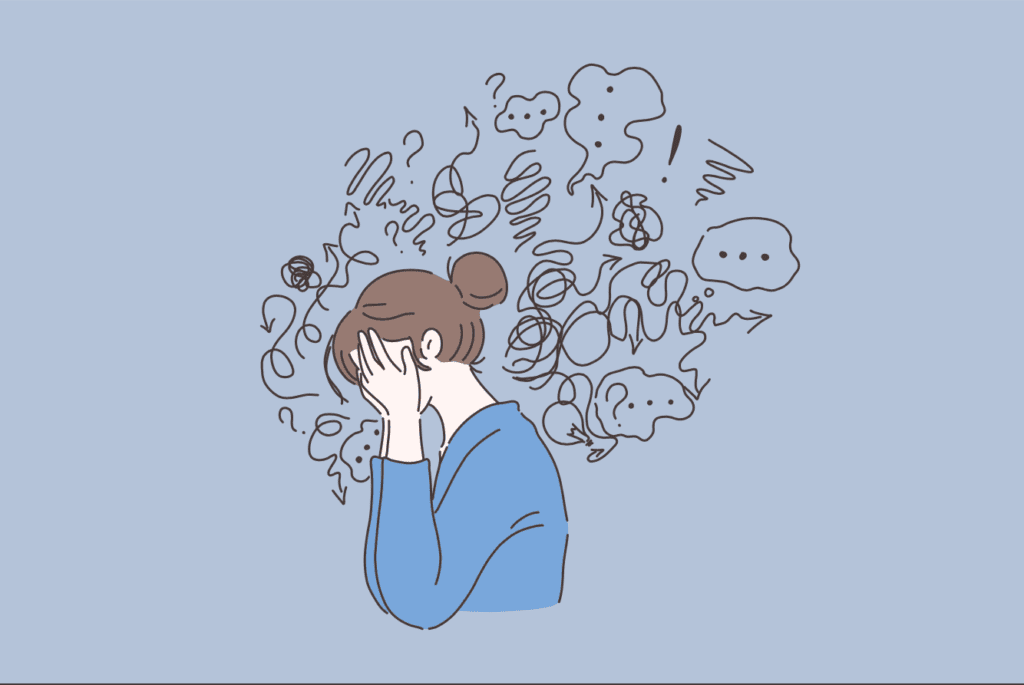
Disorders
in the context of mental health

The ever-increasing amounts of research and literature on mental health disorders certainly contributes to their improved understanding but the many mysteries that surround them are yet to be eliminated.
The terms “mental disorder”, “mental health disorder”, “mental illness”, “mental health illness”, “psychological illness”, “psychological disorder”, “psychiatric illness”, “psychiatric disorder” all refer to the same thing. Centuries have passed and the definition of this “same thing” continues to undergo revisions. While we do not have its universally accepted definition (no one does!), the following information will guide you as you navigate your way through this puzzle.
“Is a mental health disorder even a real thing?”
YES! A mental health disorder is as real as any other disorder can get. Challenges in defining/ understanding it should not be equated to negating its existence.
“Is abnormal thinking/ feeling/ behavior same as mental health disorder?”
Defining abnormality has been as challenging as defining a mental health disorder. Abnormality in this context is usually associated with thought, feeling, and/ or action that is perceived to be deviant/ different (from the existing social norms; from statistical data; from ideal mental health), dangerous (to self and/ or others), dysfunctional (affecting various domains of one’s life), and distressing (to self and/ or others). As the understanding of what is “normal” varies across people, places, and times, so does the conception of what it is not.
Abnormality in thought, feeling, and/ or action that takes all the above mentioned four features (deviance, dangerous, dysfunctional, distress) into account can be reflective of an underlying mental health disorder but it doesn’t have to mean that every time.
“Does having a mental health disorder mean that I do not have mental health?”
That’s somewhat like wondering if wearing corrective eyeglasses/ lenses means that one does not have eyesight?
NO! Having a mental health disorder does not mean that you do not have mental health. It means your mental health is affected by a condition which becomes a part of your life but your life has other parts too. Given the right treatment and management of that condition, you can still experience certain benefits of positive mental health. Your experiences can differ from those of someone who does not have that condition, but that doesn’t make your experience any less valuable.
“What is a mental health disorder? How do I know if I have one?”
Many organisations of global repute such as the World Health Organisation, and American Psychiatric Association publish material that classifies what constitutes a mental health disorder and outline its several types. They emphasise on the need to adopt a multidimensional approach (biological, psychological, and sociocultural factors) when considering the prevention, causes, impact, and treatment and/ or management of mental health disorders.
If you are experiencing disturbances in your mental health (as noticed by yourself and/ or significant others; refer to our write-up on “Signs of Your Well-Being”), do not self-diagnose and/ or self-medicate. For instance, if you look up the diagnostic criteria for “Major depressive disorder”, and find that you fit what’s listed there, do not consider that as a confirmed diagnosis. We understand that several constraints (lack of awareness, finances, accessibility, negative judgments) can make it difficult for you to consult and get treated by a mental health professional. Having said that, we encourage you to take that step in the interest of your well-being.
In India, only clinical psychologists and psychiatrists are eligible to diagnose mental health disorders. Furthermore, only psychiatrists have the authority to prescribe medication for their treatment (if needed). Since there are no medical tests or strict biological markers that can alone indicate a mental health disorder, its diagnosis should ideally involve a biopsychosocial approach and take several aspects of your life into account.
You must also know that there can be some differences in diagnosis and/ or treatment prescribed by different psychiatrists. This can be unsettling as you may wonder, “Who do I trust?” The answer to this is a tricky one. Our advice here is to continue monitoring your situation (or have a significant other do that for you) and work with the professional whose treatment plan is giving results that are in your best interests.
“What causes a mental health disorder?”
A mental health disorder is generally caused by one or (more often by ) a combination of the following factors- biological (genetics, infections, prenatal damage, brain injury/ defects, substance abuse, etc.), psychological (abusive and/ traumatic life experiences, neglect, deprivation, low self-worth, etc.), and socio-cultural (family environment, prevailing cultural norms, financial stresses, etc.).
Note that something that causes a particular mental health disorder in one person may or may not cause it in another person.
“Are mental health disorders curable?”
Mental health disorders can be treated and/ managed such that you can live a meaningful life. There can also be periods of recovery (absence of symptoms) and the symptoms may or may not reappear. However, there is no cure/ vaccine which can guarantee that you will never reexperience that particular mental health disorder.
“Can I make sure that I never have a mental health disorder?”
You can do your best to take good care of yourself and that’ll be a strength you can always count on. Doing so may reduce the risk of some mental health disorders but there is no sure shot way of ensuring that you never have one.
“Will I definitely have a mental disorder in my lifetime or especially when I am in my late adulthood/ old age?”
Not necessarily. There is no data that can make this claim with certainty.
“Do mental health disorders need treatment? Can’t people just snap out of it?”
No, people can’t just snap out of a mental health disorder. It needs the right kind of treatment, just as any other health-related disorder does.
“What is the best way of treating a mental health disorder?”
There is no one-size-fits-all approach when it comes to treating mental health disorders. A combination of medicines, psychotherapy, self-care, and support groups is usually recommended but there are always variations based on multiple factors such as the type of disorder, its intensity and course, your overall health, available resources, etc. Hospitalisation may be recommended in very severe cases.
“Do all people with mental health disorders look weak and/ different and/ or have problems with their respective careers?”
NO. Not all people with mental health disorders look weak and/ different or have career-related problems. Some of them in fact go on to thrive in some of their roles (work and/ at home). However, such a high-functioning state should ideally not be used as a reason to avoid treatment. Doing so can delay recovery, reduce the extent of treatment effectiveness, and affect overall well-being.
“If I have a mental health disorder, does it mean I am a bad and/ or weak person? Does it mean I will become violent and dangerous?”
NO!. Social and self-stigma can lead you to such thoughts, but having a mental health disorder does not mean you are a bad and/ or weak person. Just like having high/ low blood pressure does not mean you are a bad person, similar should be the case here. Judging someone’s character/ worth by whether or not she/ he has a mental health disorder often says more about the person who’s making the judgment than its recipient. Violent and dangerous behaviors may be committed by some people with mental health disorders, just as they can be committed by someone without such a condition.
“If I am not a mental health professional, is there still anything I can do for someone with a mental health disorder?”
YES! You can support them in ways that are in their best interests while taking care of your own needs. Not discriminating/ attaching stigma to their condition is most important. Creating awareness, helping them access the right kind of resources, and letting them know that you’re here if they need you is the key.




